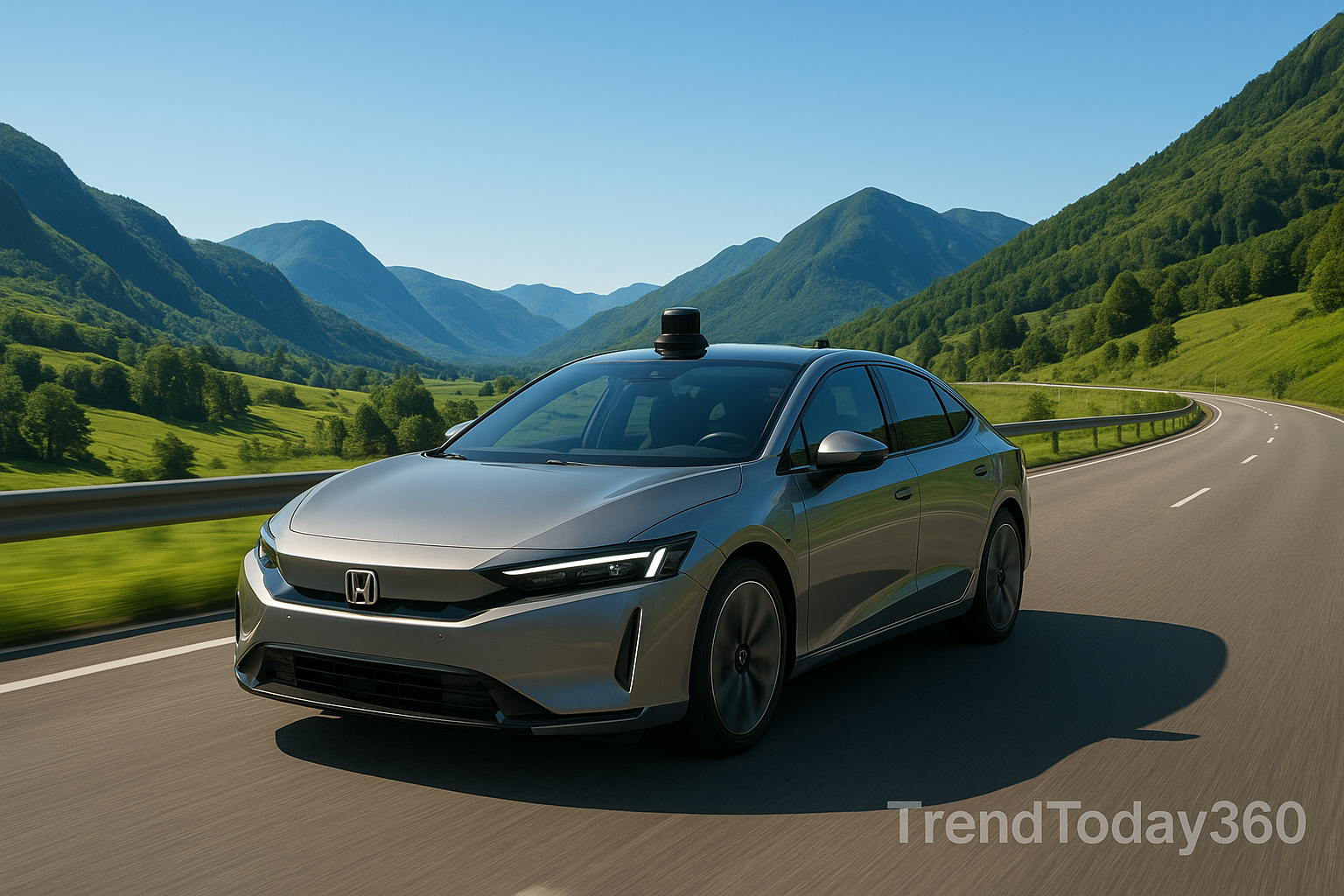Helm. AI Vision: New Vision-First Autonomy System Unveiled
California-based AI company Helm.ai vision, backed by Honda Motor Co., has unveiled a new camera-only self-driving platform.
Will Helm. ai’s Vision Power the 2026 Honda Zero EV?
Named Helm. ai Vision, the system analyzes urban environments using standard cameras, avoiding expensive lidar or radar sensors.
This camera-based technology will debut in the 2026 Honda Zero electric vehicle series, offering hands-free, eyes-off-the-road driving.
Talks Underway with Multiple Automakers
Alongside Honda, Helm.ai is actively in discussions with several automakers to license this software for future EV models.
Unlike traditional systems, Helm.ai’s software integrates smoothly into existing architectures without major hardware changes.
Confirmed Licensing Model and OEM Partnerships
CEO Vladislav Voroninski confirmed ongoing talks with OEMs to implement this vision-first solution in production vehicles by 2026.
The startup uses a licensing model, allowing automakers to adopt its foundation models without system overhauls.
Powerful Mapping Through Vision-Based AI
Helm.ai’s Vision processes images from multiple cameras to build a real-time, overhead map for better planning and control.
This system enhances vehicle awareness, helping detect lane markings, signs, obstacles, and pedestrians more accurately.
Built for Nvidia and Qualcomm Platforms
Optimized for platforms by Nvidia and Qualcomm, the system supports easy deployment across many EVs already in development.
This compatibility reduces the need for redesigning vehicle hardware.
A Cost-Effective Alternative to Radar and Lidar
By removing radar and lidar, Helm.ai reduces both hardware complexity and overall cost for autonomous system integration.
This makes the technology more accessible for mid-range and budget-friendly EVs.
Different from Multi-Sensor Competitors
In contrast, competitors like Waymo and May Mobility use combinations of radar, lidar, and cameras for redundancy.
However, Helm.ai is committed to a pure vision-first strategy, relying on AI-driven software intelligence.
Flexible Foundation Models Support Future Expansion
While optimized for cameras, the foundation models can adapt to other sensors, offering flexibility when needed.
Still, the company prioritizes vision-based performance as its core innovation.
Addressing Low-Visibility Challenges
Critics note that camera systems may struggle in low light or poor weather.
Yet, Helm.ai is refining its AI models to overcome these challenges through deeper training and environmental adaptability.
Real-Time Road Understanding Achieved
The AI has been trained on diverse datasets to recognize road conditions, traffic signs, and other vehicles with high precision.
As a result, the system responds intelligently in complex driving situations.
Designed for Seamless Integration
Helm.ai’s Vision fits into existing EV systems without requiring complete rewrites of navigation or prediction modules.
This speeds up deployment timelines for automakers.
Over $100 Million in Investment Secured
To date, Helm.ai has raised more than $100 million from key investors such as Goodyear Ventures, Amplo, and Sungwoo HiTech.
This funding shows growing confidence in affordable, vision-only autonomous systems.
Making Autonomy Available to All
This launch marks a turning point. Autonomous driving is now shifting from high-end vehicles to mass-market electric cars.
Helm.ai is helping lead this transition.
Helm. AI Vision Real-World Deployment Coming in 2026
Production integration remains on track. Helm.ai expects real-world deployment of its platform with the 2026 Honda Zero EV lineup.
Driving the Software-Defined EV Revolution
Helm.ai’s approach reflects a growing industry trend: hardware standardization with AI-led software upgrades defining next-gen vehicles.
- A Scalable Strategy for Mass Autonomy
By aligning with Tesla-like strategies, Helm.ai offers a modular and affordable alternative to sensor-heavy autonomous systems.
It’s built to scale without compromising functionality.
Meeting Industry Demand with Cost-Effective Helm. AI Vision
As the automotive world evolves, the demand for affordable, intelligent, and scalable autonomy continues to grow.
Helm.ai is well-positioned to meet that demand through a flexible, camera-first solution.
Updates By TrendToday360







Leave a Reply